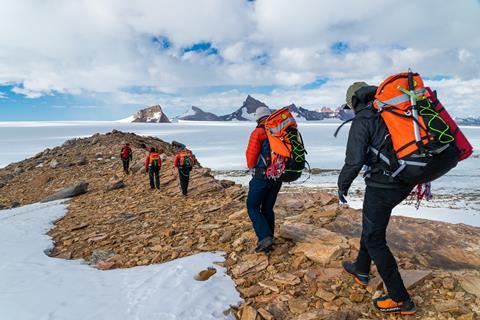Three-part natural history show to take viewers to coldest places on Earth
The ABC in Australia, PBS in the US and ITV Studios have linked up on a new three-part natural history series titled Ages of Ice.
The show is from Northern Pictures and follows scientists pushing the boundaries of exploration and human endeavour in Earth’s coldest corners to understand the changes of ice and what this means for our planet’s future.

The series will follow these modern-day explorers as they try to understand how the fate of every place and every creature on our planet is tied to these frozen extremes.
The show has secured “major production investment” from Screen Australia in association with Screen NSW, with ITVS selling globally. It will debut on ABC and streamer iview in 2026, with PBS launch dates yet to be confirmed.
Northern Pictures’ head of factual, Karina Holden, described the show as “unlike any other,” adding: “We are venturing into some of the most formidable and breathtaking landscapes on Earth, where science becomes an act of sheer endurance.
“Filming in these remote extremes has been an extraordinary challenge, both physically and logistically but the urgency of the story demands it. Through the series we hope to reveal the profound connection between the polar regions and the future of our planet.”
Diana El Osta, executive in charge at PBS, said: “We are so proud of the collaboration between PBS, ABC and Screen Australia to bring Ages of Ice to our audiences. These awe-inspiring and critical stories of exploration showcase the remarkable work being done by scientists to unlock the mysteries of our planet’s coldest regions.”
ABC head of documentary & specialist, Susie Jones, added: “The ABC is committed to commissioning innovative natural history content, and we can’t wait to share Ages of Ice with Australian audiences”.
Screen Australia head of documentary, Richard Huddleston, said the show would “add to Australia’s reputation as the home of world class natural history and science producers”.







No comments yet